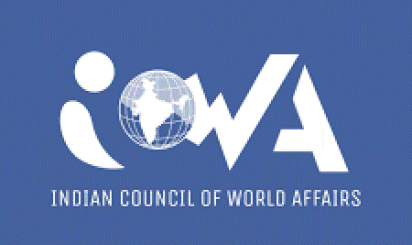National Current Affairs – UPSC/IAS Exams- 6th January 2020
Topic: Government Schemes
In News: UJALA and Street Lighting National Programme (SLNP) of the central government completed five successful years.
More on the Topic:
- Over 36.13 crore LED bulbs have been distributed across the country through the UJALA initiative. This has resulted in estimated energy savings of 46.92 billion kilowatt-hour per year.
- Unnat Jyoti by Affordable LEDs for All (UJALA) project brought the market transformation in the energy efficiency sector. Prices of LED bulbs being distributed under UJALA programme have fallen to one-tenth of their rates, from 310 rupees in 2015 to 38 rupees in 2018.
- The switch from inefficient incandescent bulbs to LEDs is helping families reduce their electricity bills while also enabling them to access better brightness in homes.
- More than 1.03 crore smart LED streetlights have been installed till date under the Street Lighting National Programme. This has enabled an estimated energy savings of 6.97 billion kilowatt-hour per year.
- LED streetlights have been installed in various states across the country, helping in generating approximately 13,000 jobs to support Make in India initiative.
Source: Hindu
Topic: Health
In News: Pune will host fifth edition of global Drosophila conference.
More on the Topic:
- This biennial conference, which is to be held between January 6 and 10, aims to promote the interaction of Drosophila researchers in the Asia-Pacific region with their peers in the rest of the world.
- It will bring together scientists from all over the world who use the fruit fly, Drosophila, as a model organism to address basic and applied questions.
- Drosophila is one of the most widely-used and preferred model organisms in biological research across the world for the last 100 years. Several discoveries in biology have been made using this.
- Its genome is entirely sequenced and there is enormous information available about its biochemistry, physiology and behavior.
Source: Hindu
Topic: Science and Technology
In News: The National Aerospace Laboratory (NAL) said that the government needs to be the “launch customer” to make Saras Mk2 commercially viable.
More on the Topic:
- The 19-seater aircraft, developed with a target cost of ₹50 crore, is at least 20-25% lower in cost than other aircraft in the similar category.
- It is the first indigenous light transport aircraft.
- The first prototype flew in 2004. But without the initial push from the government, the manufacturing capacity required for commercial production could not be set up.
- The NAL has been pitching SARAS Mk-2 for the government’s UDAN (Ude Desh Ka Aam Nagrik), since it has the capacity to operate in “ill-equipped”, “semi-prepared” and “unpaved airstrips”.
Source: Hindu
Topic: Environment and Ecology
In News: According to annual reptile census, the population of the saltwater or estuarine crocodile (Crocodylus porosus) has increased in the water bodies of Odisha’s Bhitarkanika National Park and its nearby areas in Kendrapara district.
More on the Topic:
- Crocodilians were threatened in India due to indiscriminate killing for commercial purpose and severe habitat loss until enactment of the Wildlife (Protection) Act.1972.
- Crocodile Conservation Project was launched in 1975 in different States.
- The Gharial and Saltwater crocodile conservation programme was first implemented in Odisha in early 1975 and subsequently the Mugger conservation programme was initiated.
- The estimated number of the saltwater crocodiles increased from 96 in 1976 to 1,640 in 2012 in India due to rear and release programme established under the Indian Crocodile Conservation Project.
Crocodiles in India:
- India has three species of crocodilians namely
- Gharial (Gavialis gangeticus) (IUCN: Critically Endangered)
- Mugger crocodile (Crocodylus palustris) (IUCN: Vulnerable)
- Saltwater crocodile (Crocodylus porosus) (IUCN: Least Concern)
Bhitarkanika National Park:
- Bhitarkanika National Park is one of Odisha’s finest biodiversity hotspots and is famous for its green mangroves, migratory birds, turtles, estuarine crocodiles and countless creeks.
- The wetland is represented by 3 protected Areas, the Bhitarkanika National Park, the Bhitarkanika Wildlife Sanctuary and the Gahirmatha Marine Sanctuary.
- Bhitarkanika is located in the estuary of Brahmani, Baitarani, Dhamra and Mahanadi river systems.
- It is said to house 70% of the country’s estuarine or saltwater crocodiles.
Source: Down To Earth
Topic: Science and Technology
In News: The Centre has proposed Rs 33.3 crore for ISRO’s ‘Project Netra’ for securing Indian satellites from space debris and other dangers.
More on the Topic:
- India launched the early warning system Netra (Network for Space Objects, Tracking, and Analysis) to secure its satellites and other assets in space at an estimated to cost Rs 400 crore.
- 50 years of human space exploration has led to the creation of junk around Earth’s orbit, posing serious traffic risks to man-made satellites.
- Scientists say 50 years of human space exploration has led to the creation of junk around Earth’s orbit, posing serious traffic risks to man-made satellites.
- The NETRA project would provide India with the same capability as the US and Russia to assess threats from space debris and other hazards.
Significance:
- About 17,000 man-made objects are monitored in space of which 7 per cent are active objects. After a time, these objects become inactive and collide with each other while revolving in space.
- Every year, there are many incidents of objects colliding in space. As a result, small pieces of debris rotate at extremely fast speeds. Dead satellites and other debris present in space exist in the Earth’s orbit for many years and these debris can damage any active satellite.
Source: Hindu
New and Emerging Strategic Technologies
Topic: Science and Technology
In News: With India grappling with issues like the security implications of the introduction of 5G and artificial intelligence, the Indian foreign ministry has announced the setting up of a new division on New and Emerging Strategic Technologies (NEST).
More on the Topic:
- The new division is one of the many specialized desks created in recent years to deal with emerging challenges and scenarios.
- The NEST division will act as the nodal point in India’s foreign ministry for all matters connected to new and emerging technologies including exchange of views with foreign governments and coordination with domestic ministries and departments.
- It will also help assess foreign policy and international legal implications of emerging technology and technology-based resources.
- The desk will also be involved in negotiations to safeguard Indian interests at multilateral fora like the United Nations or the G20 where rules governing the use and access to such technologies could be decided.
Source: Hindu
Topic: Health
In News: India still has the highest TB burden in the world and despite the disease being fully curable, people still die from it.
More on the Topic:
- TB usually affects people in their most productive years and drives families into debt. It has a direct link to human suffering, discrimination and also poverty.
- Due to its infectious spread, it directly affects our economic growth as well. But, with resilience, sufficient investment, innovative approaches and strategies and the participation of all stakeholders, TB can be defeated.
What needs to be done?
- The first step is the creation of awareness and empowering of communities. Needs a multilingual, multi-stakeholder awareness effort to ensure that every single Indian knows about the challenges of TB and where to seek treatment.
- The second step is ensuring that we provide every Indian with access to correct diagnosis and treatment for TB, regardless of their ability to pay for it.
- This can only happen if governmenr work with the private sector as did in the case of polio. There is a need to go door to door, identify TB patients, and provide each of them care with compassion.
- A key challenge is building a forward-looking plan to address and control drug resistance, a man-made menace that is a major roadblock in our fight against TB. Every TB patient must be tested for drug resistance at the first point of care, whether in the public or private sector, to rule out any drug resistance.
Way Ahead:
- Government machinery at the field level should work with communities and provide free diagnosis and treatment to every affected individual. We also need to look beyond treatment.
- Recognising that medicines are not enough, programme like the Nikshay Poshan Yojana (under which TB patients receive Rs 500 every month while on treatment to ensure patients other needs ) should be promoted.
- Multi-sectoral and community-led approach should be employed to tackle the Tb problem.
Source: Hindu



















